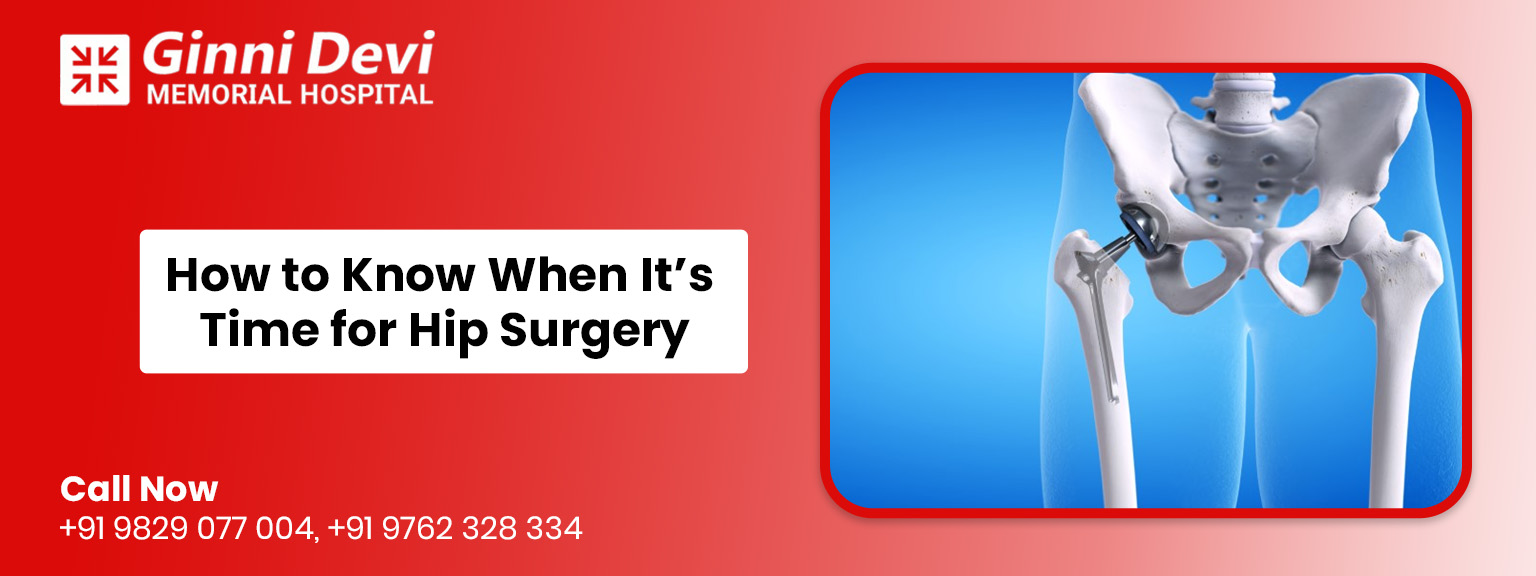There’s a certain sort of unease that sneaks up on you. In the initial period, it doesn’t shout; it’s more of a whisperer. You may start to notice a tug in your thigh, a knot in your lower back, a pause before tying your shoe, or a pain before getting in a car. You could say it’s age or a minor adjustment. But what if that throb is sending you a deeper message?
Like, not every ache is harmless. And not all pain equals panic. But there are a few signals, particularly around your hip, that you should take note of. Over time, hip pain symptoms can affect not only the way you move but also the way you live.
If you’re experiencing hip discomfort, consider consulting experts at a trusted Hip Replacement Hospital in Jaipur, like Ginni Devi Hospital. With advanced diagnostics and personalized care, their specialists can help you find relief and improve your mobility before the condition worsens.
What are the hip pain symptoms?
Hip pain is the silent buildup that triggers at once. It starts to develop gradually, and one day you realize you are starting to avoid certain movements, such as stopping to cross your legs, sitting with more caution, and walking more slowly. The hip pain symptoms are
Groin or Thigh Pain
In this, the pain often first becomes evident as a mild ache in the groin or front of the thigh. It could initially be mild and only happen after walking, standing, or exercising. As time passes, the pain will occur more often and be more severe, even at rest.
Stiffness in the Hip
Do you get stiff when you stand up in the morning or after sitting for a while? Stiffness is an early symptom that frequently worsens over time, often months or even years. It restricts your range of motion, like bending, stretching, and rotating your leg becomes difficult. It signifies that your joint is losing flexibility because of damage or arthritis.
Pain that gets worse with activity
At first, you may only hurt after a long walk or climbing the stairs. But as the condition advances, even mild activities — like walking to the bathroom or preparing a meal — can become painful. Why is it a red flag? It’s a clear sign that you need to consult an orthopedic doctor. Early diagnosis and timely treatment can help manage the condition effectively and potentially prevent the need for a hip joint replacement. If you’re looking for expert guidance, consider consulting a trusted Orthopedic Hospital in Jaipur that can provide the right direction and treatment tailored to your needs.
Limping or changes in walking style
A lot of people limp to take the pressure off the aching hip. You might also find yourself favoring one side when you are walking or standing, which can cause imbalance and pressure on other joints, including the knees or the spine. If you change the way you walk because of hip pain, that’s a strong signal of serious joint dysfunction that may need hip joint replacement.
Night pain or pain at rest
In more severe stages, hip pain doesn’t go away with rest; it gets worse. You may have pain when lying on the affected side or be awakened during the night by pain. It is one of the hip pain symptoms that gives a signal that if the pain doesn’t ease with rest, it is often the result of significant joint damage.
Diminished capacity to perform everyday activities
Every day tasks, such as pulling on socks, tying shoes, or sitting in a car, become hard or painful. You may eventually eliminate some movements, which will make your muscles weak and your joints even more strained.
Pain in the knee or lower back
Occasionally, damage to the hip joint can cause pain that radiates into the hip. You may feel pain in your knee, thigh, or lower back. It indicates that radiation of pain affects the joint’s surroundings, that is, muscles and nerves.
Joint is Swollen or Inflamed
In some cases, there may be swelling or warmth around the hip area. Keep in mind, this swelling is a result of joint damage and can lead to additional pain when you are moving around.
There are some signs that also directly lead to hip joint replacement. Other signs for surgery are
- Nonsurgical, not providing relief
- You rely on a cane or walker for balance.
- Pain affects your ability to work, walk, or sleep.
Final thoughts
It is concluded that you should always listen to your body. Whether you are in the early stage of pain or struggling daily, there is always a solution. Hip joint replacement might not be the first thing you want, but it is the best option. Moreover, if it is done at one of the best hip replacement hospitals, that is, Ginni Devi Memorial Hospital, then you just need to rest, and all the work is done by them.




